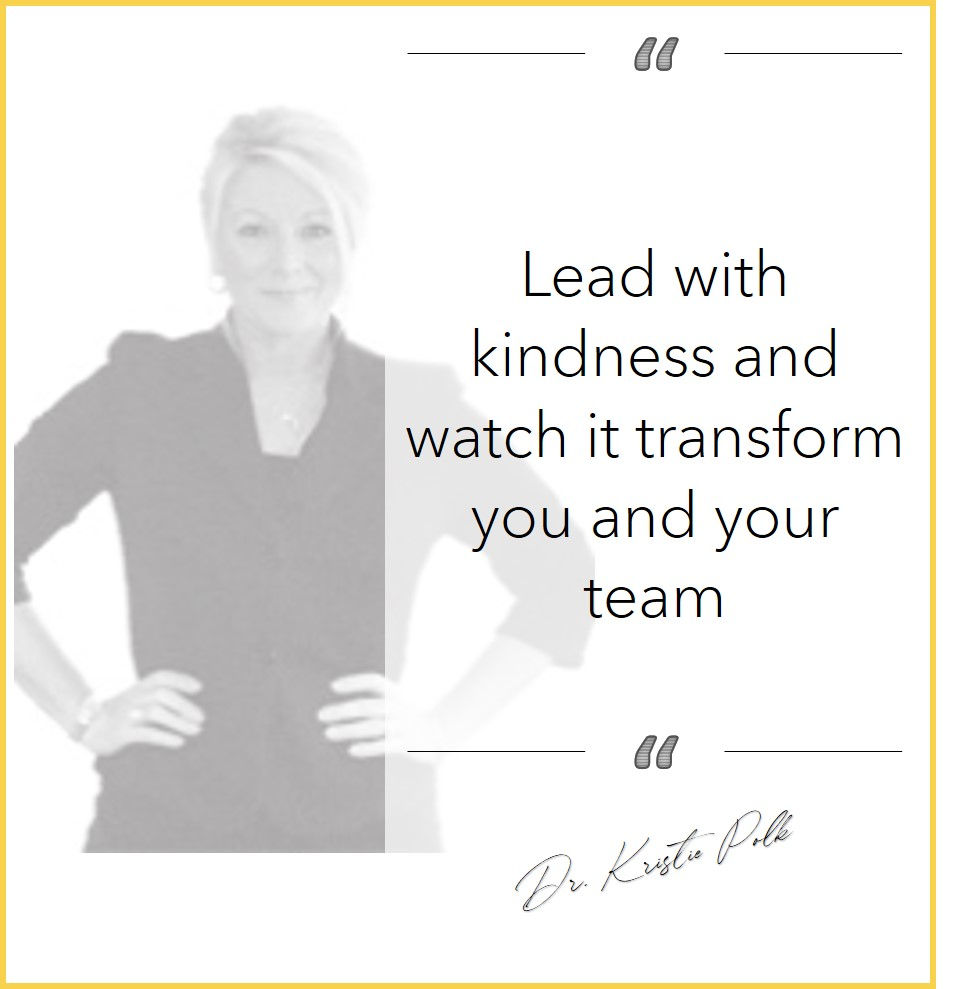Kindness
- Kristie Polk

- Nov 11, 2021
- 2 min read

I’ve been thinking a lot lately about kindness. A prolific entrepreneur has started talking about it recently and I’ve been reading his followers comments. For many years, kindness, to me, is one of the most important traits a human can possess, so I’m encouraged to see that many people in leadership acknowledge that it is no longer optional in business.
But I still read comments from people who are struggling to see how a business leader can make tough decisions, responsibly watch their bottom line, and still be considered “kind”.
There are sayings that help confuse the issue. Adages like “Don’t mistake my kindness for weakness”, or “Nice guys finish last” assume that kindness is a position one must recover from. Other, more affirmative quotes, such as “Kindness is free, sprinkle it everywhere” unfortunately, don’t do much to dispel fears that showing kindness in the workplace will make you appear naïve and ultimately weak. Neither position is effective for a leader or their team.
Psychology Today echoes the generally accepted definition of kindness as “the quality of being friendly, generous, and considerate” (Hall, 2017). Kindness is simply an interpersonal skill that often requires courage and strength- that doesn’t sound weak to me. Research has shown that developing and using this trait can strengthen relationships and lead to greater life satisfaction. Harvard and other notable universities have reshaped their admissions process to focus on it (Cashin, 2016).
Demonstrating kindness does not mean relinquishing authority. Humans have the capacity to be strong and compassionate at the same time. In fact, all of the research that I’m aware of in the areas of power and authority (parenting styles, effective leadership, healthy organizational culture, etc.) support that this is the most powerful, transformational, and productive combination.
Forbes refers to kindness in business as “no longer optional” (Lewis, 2020) as we realize that the pandemic has changed the face of business and the traditional workplace as we know it. It’s now proven that business can be done anywhere at any time…but not by just any body. Confronting the challenges of productivity amid perpetually changing and often frustrating disruptions takes skill. Keen business leaders (and parents) are recognizing their need to adapt to address emerging mental health concerns such as anxiety, confusion, and even despair as adults and children attempt to meet the demands of school and work in a new, often isolated environment. The kind words and gestures that used to be exchanged in hallways are gone along with relationships with colleagues and peers. Not acknowledging the reality and continuing to make excuses for bad manners is the real weakness.
Leaders are not just capable, we are called, to toe the line with generosity and compassion for others. That simply looks like holding ourselves and others accountable within the framework of good manners. You can correct someone, discipline someone, or even fire someone without raising your voice or attacking their inherent human value in any way. You can enforce hard deadlines, necessary quotas, and all types of measurable indicators of performance while empathizing that it’s tough and even asking for suggestions about how to improve flow. You can definitely say “please” and “thank you” along the way and recognize when work is well done.
Practice kindness and watch it transform you and your team.



Comments